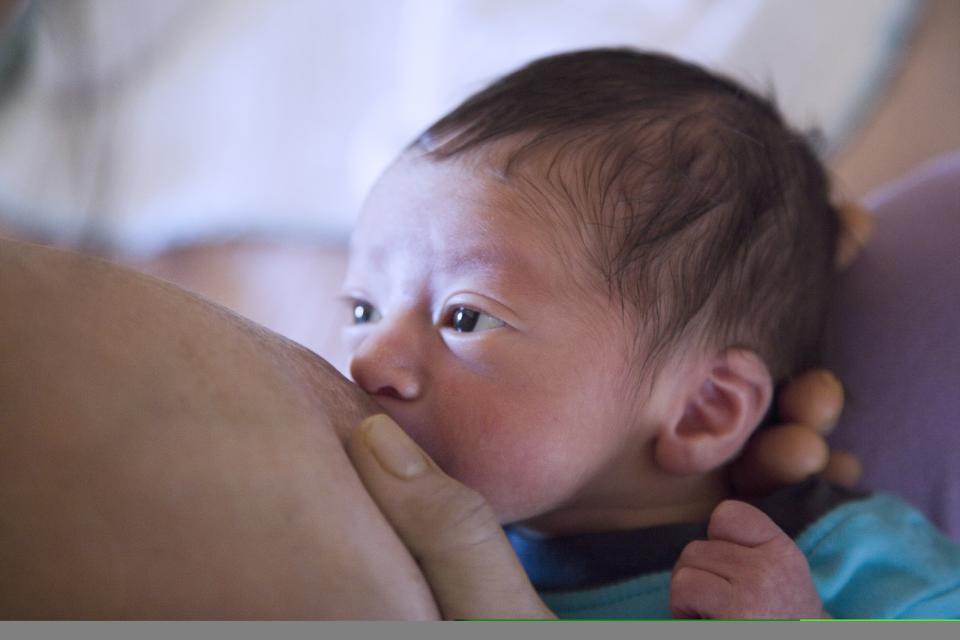Debunking The Top Five Breastfeeding Myths That Must Be Done Away With
When it comes to breastfeeding, everyone from your mother to your colleague would have a ton of advice. Some of it may be helpful, but chances are high that most of it have no scientific credibility.
There is so much misinformation around breastfeeding today that it can be hard for women to differentiate between fact and fiction. There are times when young mothers abstain from breastfeeding due to lack of awareness. According to the World Health Organisation (WHO), the recommended age which mothers must breastfeed their child is until they turn two; but that hardly happens in India today.

Although we have traditionally seen women breastfeeding in our country in times past, the statistics show a different story now. “The National Family Health Survey (NFHS) data released in 2016 indicates that 54.9 percent children are exclusively breastfed for the first six months. This is largely because very few doctors and nurses are trained in breastfeeding skills, because of which they are unable to disseminate the right information to the mothers,” shares Dr. Taru Jindal, MS (Obstetrics and Gynaecology), Board Certified Lactation Consultant.
In an exclusive conversation with MAKERS India, she also revealed the truth behind some of the most common myths associated with breastfeeding.
Also Read: How Dr Taru Jindal’s ‘Experiments in Bihar’ Saved the Lives of Hundreds of Pregnant Women
Myth 1: You can’t breastfeed during pregnancy
When it comes to breastfeeding and pregnancy, there are several theories. But Dr. Taru assures that breastfeeding during pregnancy is absolutely safe.
“A lot of women stop breastfeeding their first child during their pregnancy, since they believe it will lead to a miscarriage. Unfortunately, a lot of doctors also have this misconception, but it isn’t true,” she says, adding that oxytocin, the hormone that is released during breastfeeding, is responsible for the contraction of the uterus, and mothers believe that the uterus will contract every single time and cause a miscarriage.
“That’s not true because the uterus will not respond to it until it is close to the labour period,” shares Dr.Taru, adding that those who have a history of abortions or premature deliveries must not breastfeed.

Myth 2: Focus on certain foods and consume supplements to increase your breast milk supply
One of the top concerns for breastfeeding moms is making enough milk to meet their baby’s needs. Some women add certain foods and supplements to their diets to boost their milk production; but that won’t help, according to Dr. Taru.
“Milk supply is dependent on demand and supply mechanism. The more milk you give to the child, the more milk is produced by the breast. There is a sensor in the breast that assesses the amount of milk being released, and according to that, it produces milk. If a mother is breastfeeding well, the milk produced by both the breasts will be about 700-800 ml in 24 hours,” she added.
Giving formula milk to the child, or the baby’s wrong latching position can also restrict the release of breast milk.
Myth 3: You can’t get pregnant while breastfeeding
Contrary to general perception, breastfeeding mothers can get pregnant within six weeks of their delivery, according to Dr. Taru. She advises women to use contraception, since the chances of ovulating are high after delivery.
“Even though you are not menstruating, the egg gets released from the ovaries six weeks after delivery. So, it is important to be mindful of that even if you are exclusively breastfeeding your child,” she informed.

Myth 4: A bottle of milk a day is acceptable
Some mothers tend to use a combination of breast milk and formula powders for their babies; but Dr. Taru advices against it. Once the baby gets into the habit of having milk from the bottle, it will start to reject the breast, she says.
“When the baby uses the bottle, milk flows very fast, unlike when he/she is breastfed. While being breastfed, the baby has to make a lot of effort to drink the milk. Secondly, the contour of the nipple and the bottle is very different; so the baby develops some confusion. In case formula milk is to be given (under certain circumstances), it must be fed using a bowl and spoon.” she added.
Also Read: Pay more attention to your periods
Myth 5: Formula powder or cow milk is a good replacement for breast milk
Babies are not designed to consume cow milk or formula powders, since it is meant for calves. To build immunity and boost proper development of a child, nothing works better than breast milk. This is largely because cow milk has excess protein content, which is not favourable for babies, and is known to cause infections and allergies, shared Dr. Taru.
“Breast milk that has low protein, and anyway excess protein is not healthy for humans. Protein in cow milk is known to cause allergies, autoimmune diseases and asthma, if it is given to the baby during the first year after his birth. The intestines are not as well-developed at that point, and it could lead to issues. In formula milk, they try to add and subtract nutrients so that it resembles breast milk, but it can’t be like that,” she says.
Also Read: Every Vagina is Different and Unique
(Edited by Athira Nair)

